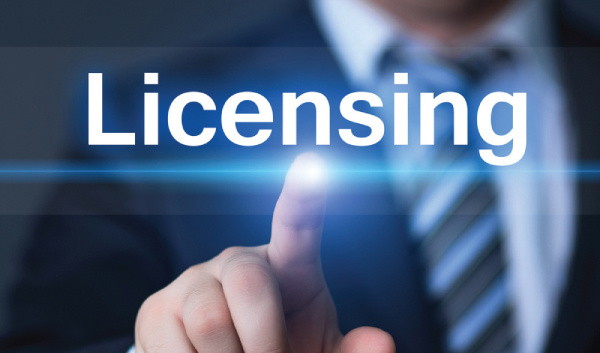Telematics is a rapidly developing field of telecommunications. The prospects for the development of telematics are promising and vast. This area covers a wide range of different services. Communication technology allows you to solve any telecommunication problems with a great reserve for the future.
What is telematics?
Telematic communication services - what is it? This question interests people who are associated with the telecommunications sector. Telematic communication services are a set of services provided to customers in the field of electronic communications. This area does not include telegraph and telephone services. The term "telematic connection" means the use of only cybernetic space. Telematics services are one of the latest achievements in the field of communication development.

Voice and email, Internet and fax are the classic types of telematic communications. A similar relationship has been developing rapidly in recent years. A classic example is video chatting via Skype. Among the new products can distinguish video and audio conferences, which are attended by many subscribers.
Curricula, video tutorials, and online training are also categorized as telematic communications services. An integral part of the described type of communication is the hosting of sites, mailboxes and various applications. Telematics systems include various elements with self-tuning modules.
Telematics within the law
The area considered in the article is regulated by the laws of the country where the operator is actually registered. The rules for the provision of telematic communication services govern this area of activity. Moreover, a resident of any country has the right to register a site in another country and engage in the provision of telematic services. The only exceptions are countries in which a dictatorial regime is present.
This area of activity is regulated by the law “On Communications”. Operators provide a guarantee of confidentiality and bear full legal responsibility for the disclosure of personal information of customers. Also, the operator resists any hacker attacks.

Telematic services are a special area that is subject to mandatory licensing. In order to obtain a license, the operator must have special technical equipment. It should guarantee the safety of all information and addresses. The highest demands are placed on the provision of banking services.
The legal norms specified in the Law “On Communications” provide for a general model of behavior. However, there are situations that the legislator did not foresee. In this case, the services of special organizations that have the appropriate knowledge and experience may be required. Such companies are engaged in the professional interpretation of legal norms.
Development prospects
Telematic communication services are a rapidly growing market that is growing by 40% annually. In Russia, this type of service appeared only in the early 2000s. Today there are more than 100 different similar services. They are used in the most advanced technologies affecting the social and technical aspects.

In recent years, interest in distance learning has grown significantly.This format allows you to get a quality education without visiting a school. In the future, one can expect high-tech telematic services, as this area is actively developing. Therefore, in the coming years, all Internet users will know what it is - telematic communication services.
Types of services
The general list of telematic services is determined according to certain licensing conditions. Until recently, the list of services included the provision of:
- Messaging via email.
- Fax transmissions.
- Access to regional information and telecommunication networks.
- Access to information over the Internet.
The license for telematic communication services covered the activities of email services, hosting providers and Internet cafes. Operators who did not have their own servers operated on the basis of a different license. The Russian government approved the Rules, which introduced a number of changes to the list of services. Today telematic services are provided by:
- access to information systems of information and telecommunication networks;
- access to the licensee’s communication network;
- reception and transmission of electronic messages.
Internet access is the main type of service that covers the telematics license.
Company licensing
If the company provides the services of the "last mile", you should get two types of licenses. One of them is issued for telematics, and the other for data transmission. Using your own communication center and providing hosting services, e-mail also requires a license.

If the actual activity differs from the subject of the license, the creation of "gray" communication lines and networks will be required, which will bring the infrastructure in accordance with the approved Rules. You can obtain a license in the following ways:
- Contacting a specialized company. At the same time, there is no need for independent preparation of various documents and applications. The service is provided on a paid basis, at the request of the client.
- Self-preparation of a package of documents.
The final decision to grant a license is provided by the licensing authority. As a result of consideration of a package of documents and conducting checks, a license is issued for carrying out activities in the field of telematics.
Personal Information
The rules for the provision of telematic communication services provide for the conclusion of a written contract with a client or the implementation of relevant actions. The conclusion of the contract provides for the provision of an identity card. This information belongs to the category of personal data. Therefore, it is subject to a special regime, which requires the consent of the subject to implement the processing of information received. In turn, this imposes certain restrictions on the use of a copy of the submitted documents.
Personal data is information that relates to the subscriber, including address, name, contact information, etc. Processing of personal data involves the accumulation, systematization, blocking and other actions. Telematic communication services are an area of activity in which special attention is paid to this issue.
Company Responsibilities
In accordance with the approved rules, the operator assumes no responsibility for the content of information that is transmitted to users and subscribers. However, this does not exempt the provider from liability in the event that he owned information on the illegal dissemination of information.

The main duty of the operator is the quality provision of telematic communication services to the subscriber. The elimination of any malfunctions is one of the conditions of the rules for the provision of this type of service.The suspension of services resumes after the user has paid the debt. If the operator violates the requirements specified in the contract, it is possible to suspend the provision of telematic services.
User Responsibilities
In connection with innovations in the information sphere, telematic services have gained particular popularity. They allow subscribers to use world information resources and other opportunities.

Telematic services imply the observance of certain obligations on the part of users. Among the main responsibilities, the following can be distinguished:
- Timely payment of telematic services.
- Using software that meets the requirements of modern legislation.
- Prompt notification of the operator of any changes that affect the terms of the contract.
- Protection of the subscriber terminal from malware.
- Respect for the equipment provided.
- Assist in countering the spread of spam and malware.
If the provider requires an additional fee for the services provided, this is regarded as a violation of the terms of the contract. Therefore, it may be subject to immediate termination.
System levels
Telematic communication services are a rapidly developing field that is in high demand. Therefore, the market for these services is increasing every year. Telematics is a special area of activity that provides many ways to communicate. The following systematic telematics levels are distinguished:
- Communication opportunities.
- Technical support.
- General services (conferences, email).
- Applied Tasks.

The level of applied tasks is the determining direction in the development of telematic services. The set of services is determined individually for each consumer, according to the specifics of the application area. Service packages are created to implement various tasks that arise both in small working groups and in enterprises.









